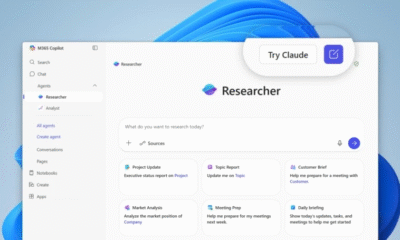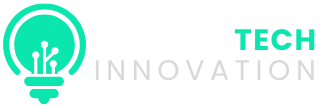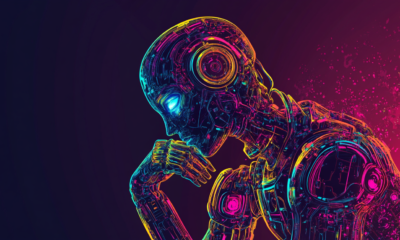AI
Maximizing Efficiency: How Anthropic’s Skills Drive Claude’s Speed, Cost-Effectiveness, and Reliability in Business Workflows

Anthropic, a leading AI company, recently introduced a groundbreaking feature called Skills that enhances its Claude AI assistant’s capabilities. This new feature allows users to create customized folders containing instructions, code scripts, and reference materials that Claude can utilize when necessary for a task. Skills represent a shift towards more personalized and reusable domain expertise within AI assistants, enabling organizations to tailor AI capabilities to their specific needs.
According to Mahesh Murag, a technical staff member at Anthropic, Skills are designed to adapt as model intelligence improves, moving towards more general-purpose agents with access to their own filesystems and computing environments. The system employs a concept called “progressive disclosure,” where Claude initially only sees skill names and brief descriptions, autonomously deciding which skills to load based on the current task at hand. This approach allows for a more comprehensive and efficient utilization of AI capabilities within organizations.
The launch of Skills comes at a pivotal time for Anthropic, as the company continues to grow rapidly in the AI market. With a valuation of $183 billion after a recent funding round, Anthropic projects significant revenue growth in the coming years, driven by enterprise adoption of its AI coding tools. The company faces stiff competition from OpenAI’s Codex platform in the AI-powered software development arena.
Skills differ significantly from other AI customization approaches like prompt engineering or retrieval-augmented generation (RAG). The architecture of Skills focuses on progressive disclosure, allowing Claude to access specific information from folders to complete tasks effectively. This approach enables organizations to bundle extensive information, including step-by-step procedures, code templates, reference documents, and more, in a structured manner that Claude can navigate intelligently.
Anthropic positions Skills as a unique offering compared to competitors like OpenAI’s Custom GPTs and Microsoft’s Copilot Studio, emphasizing the combination of progressive disclosure, composability, and executable code bundling. Skills provide cross-platform portability, working seamlessly across various Anthropic products and allowing for consistent customization across different AI agents.
Early customers of Skills have reported significant productivity gains in various workflows, such as finance operations. Companies like Rakuten have seen an 8x improvement in productivity for specific tasks, showcasing the tangible benefits of incorporating Skills into AI workflows. Other organizations like Canva and Box are also exploring the integration of Skills to enhance their AI capabilities and streamline operations.
For enterprise IT departments, the introduction of Skills raises questions about governance and control, especially concerning AI’s ability to execute code in sandboxed environments. Anthropic has implemented administrative controls to manage access at the organizational level, ensuring that users have adequate security measures in place when utilizing Skills.
Anthropic is committed to making Skills accessible to users with varying technical expertise. Non-technical users can leverage the skill-creator feature on Claude.ai to build new skills interactively, while developers can utilize the API to manage skill versions and installations. The company offers pre-built skills for common business tasks and is working on simplified skill creation workflows to facilitate enterprise-wide deployment.
In conclusion, the launch of Skills by Anthropic represents a significant advancement in AI customization and enterprise workflows. By enabling organizations to create customized AI assistants with specialized domain expertise, Skills have the potential to revolutionize how companies leverage AI technology. As Anthropic continues to innovate and expand its offerings, the role of AI in enterprise operations is set to evolve, with a focus on intelligent systems that can effectively coordinate complex tasks across multiple domains of knowledge.
-

 Video Games2 days ago
Video Games2 days agoGoku Takes on the Dragon Ball FighterZ Arena
-

 Video Games3 days ago
Video Games3 days agoTekken 8: Rise of the Shadows
-

 Cars1 day ago
Cars1 day agoRevving into the Future: Ferrari’s Plan to Unleash 20 New Models, Including Electric Vehicles, by 2030
-

 Amazon3 days ago
Amazon3 days agoNeil Young Takes a Stand: Pulling Music from Amazon in Protest of Jeff Bezos’ Support for Trump
-

 Tech News3 days ago
Tech News3 days agoSamsung Galaxy UI 8: Embracing the Big Free AI Upgrade
-

 Microsoft1 day ago
Microsoft1 day agoMicrosoft Integrates Anthropic’s Claude AI Models into 365 Copilot: A Deepening Relationship with OpenAI
-

 Apple3 days ago
Apple3 days agoExploring the Dystopian Realms of Pluribus: An Apple Original Series Trailer
-

 Security3 days ago
Security3 days agoCritical Vulnerability Exposed: Oracle EBS Targeted in Recent Cyber Attacks by Cl0p Hackers






























